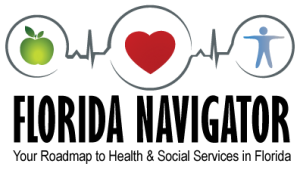Disability Related laws
By Robert Goodman, MSW
- What rights do U.S. citizens with visual impairments have today in terms of receiving materials in large print, braille, or audio with pertinent health information?
The Rehabilitation Act of 1973 provides for the same requirement, but for government agencies and health care providers that receive federal funds such as Medicare.
The Americans with Disabilities Act, passed in 1990 states that local and state governmental entities and businesses, including all health care providers, must provide reasonable accommodation in the way they communicate with their clients or patients. This includes printed materials that must be available in an alternate format such as large print, braille, or audio.
Doctor’s offices: reports, instructions for diagnostic tests, instructions for pre- and post-surgical care
Home health agencies: information on services, privacy, instructions on care and other important information
Health care facilities: welcome packets, admission forms, discharge instructions
- In your opinion, what percent of South Florida health companies provide the proper information style (large print, braille, brochures) for people with vision impairment or disabilities?
I would guess less than 1% based on my experience in trying to get companies to comply and avoid (ACHA), Agency for Health Care Administration tags and lawsuits. I would hope I am wrong and more providers are complying with the law. My website disabledamericansact.com will list providers that do comply as we compile this information.
- In your opinion, what percent of U.S. health companies provide the proper information style (large print, braille, brochures) for people with vision impairment or disabilities?
I would say the same as above. Many of the health care providers are national companies and are not complying with the law even after being requested to do so.
- How can working with an MSW, like yourself, assist health care providers to become compliant with these laws?
By working with me, as a consultant, and my graphic designer, health care providers can learn about their obligations under these laws and learn how to accommodate people with disabilities. We can help health care providers convert their materials into large print. There are other companies that can help convert materials to audio or braille.
Contact: rgoodlobby@gmail.com or
561-465-2224.
- What are the most effective ways you’ve found to get people with visual impairments or disabilities to effectively communicate their needs for health information?
I have been speaking to various organizations who serve people with visual impairments about their rights under these laws. I have also published a handy guide to the ADA for businesses and people with visual impairments. We give out cards that patients can show their health care providers with information on these laws. These are available in large print and on CDs. However, I need sponsors to help reproduce more copies of these materials.
- How did you get involved in helping people with visual impairments or disabilities get health information in the proper format?
I am legally blind and need materials myself in large print. I and many of my neighbors received the large packets of information given out by home health agencies and were not able to read it. If we cannot read the materials given to us, how are we supposed to follow doctor’s orders. This can have a negative impact on health care literacy and outcomes and could end with rehospitalizations. That can result in hefty fines by the Federal government.
- What are your hobbies and passions in life outside of health care?
Politics. I have a large collection of campaign buttons going back to McKinley.
Traveling with my wife. We have visited many countries and taken many cruises. We have toured 45 states.


